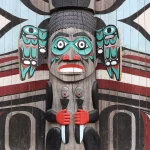
Honouring Country: The Connection to Land in Indigenous Festivals
Indigenous festivals in Australia are unique in the sense that they are deeply rooted in the cultural and spiritual connection to the land, reflecting the deep relationship between First Nations people and their ancestral territories. The concept of "Country" holds great significance in Indigenous culture, and describes not only the physical landscape but also the spiritual and ancestral connections to the land. Throughout these festivals, Indigenous communities come together to honour Country, express gratitude, and celebrate the ongoing custodianship of their traditional lands. Read on below to understand the importance of the connection to land in Indigenous festivals, how it is manifested in various ceremonies and activities, and the broader significance of preserving this ancient bond.
The Concept of Country
In Indigenous Australian culture, the term "Country" refers to more than just a geographic location. It involves the entire environment, including the land, waterways, sky, plants, animals, and the spiritual essence that binds them all together. Country is viewed as a living entity, with its own spirit and energy, and Indigenous communities recognise their responsibility as custodians of the land. This profound connection to Country is at the heart of Indigenous festivals, shaping the themes, rituals, and activities that take place during these events.
Acknowledging Traditional Custodians
One of the essential elements of Indigenous festivals is the acknowledgment of the traditional custodians of the land on which the event is held. Before any festival activities commence, you will see a Welcome to Country ceremony that is performed by the local Indigenous elders or representatives. This traditional practice involves a formal welcome and acknowledgment of the traditional custodians, paying respect to their ancestors, and seeking permission to conduct the festival on their land. This act of acknowledgement serves as a reminder of the ongoing connection and stewardship Indigenous communities hold over their Country.
Tip
You can also see the importance of the elders in these festivals to pass down traditions and you can read more about this in the article, Learning from Elders at Queensland's Festivals.
Ceremony and Ritual
Indigenous festivals are steeped in ceremony and ritual, often performed to honour Country and seek blessings from the ancestral spirits. Smoking ceremonies, for example, involve burning native plants to produce smoke that cleanses the surroundings and instils a sense of respect for the land and its spirits. Other ceremonies may include dances, song lines, and traditional performances, each carrying spiritual significance and reinforcing the cultural connection to the land.
Tip
These festivals also provide a platform for the youth to learn about these ceremonies and rituals. To know more about how this happens, you can read the article, Preserving Heritage for Future Generations.
Cultural Storytelling
Storytelling is a powerful tradition in Indigenous culture, and festivals provide an ideal platform for passing down ancestral knowledge and indigenous stories in Australia to the next generations. Through storytelling, attendees learn about the creation myths, the journeys of ancestral beings, and the spiritual significance of specific sites on the land. These stories deepen the understanding of the sacred connection between Indigenous communities and Country, fostering a greater appreciation for the unique relationship First Nations people have with the land.
Traditional Land-Based Activities
Many Indigenous festivals include traditional land-based activities that allow attendees to engage directly with the environment like bush tucker tours, guided walks, and traditional hunting or fishing demonstrations. By participating in these activities, you can gain insights into the sustainable practices that Indigenous communities have employed for thousands of years to maintain a harmonious relationship with the land.
Art and Expression
Artistic expression also plays a significant role in honouring Country during Indigenous festivals. Visual arts, such as paintings, sculptures, and installations, help showcase landscapes, totemic beings, and other aspects of Country. Dance performances and music are also often inspired by the land and the natural world, further reinforcing the connection between culture and Country.
Environmental Advocacy and Stewardship
These Indigenous festivals also provide an opportunity for these communities to proclaim their environmental stewardship and land rights. These events draw attention to issues such as land degradation, climate change, and the preservation of sacred sites. Through public engagement and education, Indigenous festivals contribute to broader conversations about sustainable practices, indigenous land conservation, and the importance of respecting the land and its traditional custodians.
Conclusion
Indigenous festivals in Australia act as a powerful reminder of the deep connection between First Nations people and their ancestral lands. By honouring the Country, these festivals celebrate the spiritual, cultural, and environmental significance of this Indigenous culture. Through ceremonies, storytelling, art, and activities, attendees gain respect for the ongoing custodianship of the land and the wisdom of Indigenous communities in maintaining a peaceful relationship with Country. Preserving this connection to land in Indigenous festivals not only strengthens cultural identity but also helps in environmental sustainability, creating a more profound appreciation for the land we all share.





